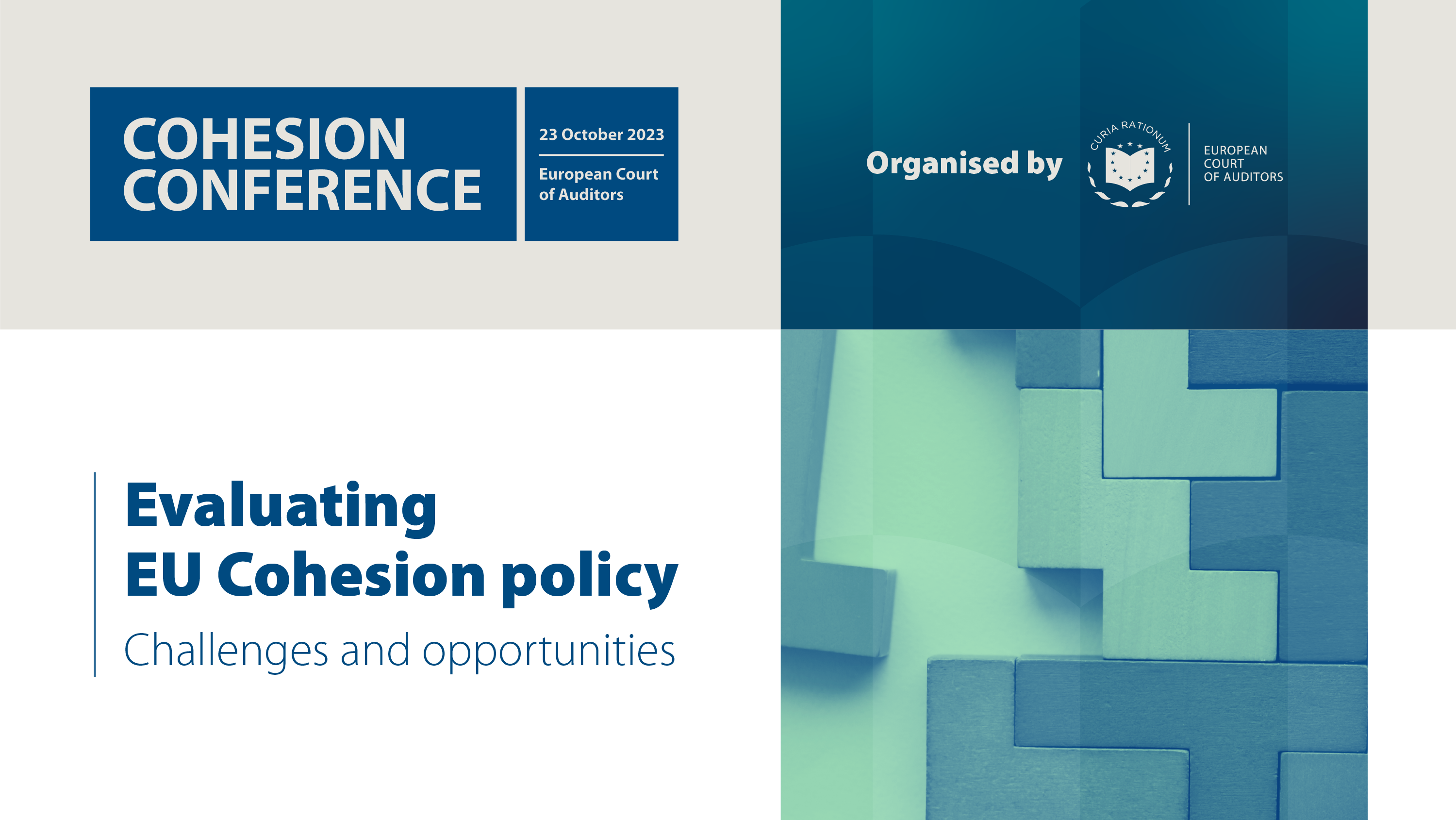Evaluating EU Cohesion Policy – Challenges and opportunities
,
–
(
CET )

Evaluation is a key dimension of the cohesion policy cycle, as it
supports policy design and
implementation with robust evidence on the outcomes and impacts of the interventions. As more and more
novel approaches are emerging in order to better assess these outcomes and impacts, EU rules governing the planning and implementation of cohesion policy are also evolving.
In the
2 period, EU countries have been obliged (for the first time) to carry out evaluations to
assess the effectiveness,
efficiency and impact of the objectives of each
intervention. Since
, more than 1000 such evaluations have been completed. However, there are notable differences regarding the number and quality of evaluations carried out within each EU country. Nevertheless, evaluations are an important source of evidence regarding the
benefits of the EU's cohesion policy. Yet critics have argued that evaluation findings rarely lead to changes in how interventions are implemented and future programmes designed. At the same time,
new data sources can make evaluations more useful and precise. In this context, it is high time to take stock of how a
robust evaluation system can be set up in order to fully exploit the
opportunities presented by cohesion policy.
The conference will cover the following topics:
- Assessing the European added value of cohesion policy: evidence from EU and national evaluations during the last three programming periods;
- Innovative methodological approaches to evaluations, particularly in the context of new data sources;
- Setting up and auditing a robust evaluation system.
ECA Member
Annemie Turtelboom will make the opening remarks.
Elisa Ferreira, European Commissioner for Cohesion and Reforms,
Kyriacos Kakouris, EIB Vice-President, and
Mathias Cormann, Secretary-General of the OECD will give the keynote speeches. ECA Members
Stef Blok,
Eva Lindström and
Helga Berger will each set the scene for a discussion with international experts on the conference topic.
Agenda
Conference agenda
Cohesion Conference 2023: Evaluating EU Cohesion policy – challenges and opportunities
,
– (
CET ) |
|---|
|
– | Welcome desk and coffee service |
|
– |
Opening remarks |
Annemie Turtelboom, Member of the European Court of Auditors (ECA) |
|
– |
Keynote speech |
Kyriacos Kakouris, EIB Vice-President |
|
– |
Panel 1 |
Assessing the European added value of Cohesion policy: evidence from EU and national evaluations during the last three programming periods
Panel moderator:
Stef Blok, ECA Member
-
John Bachtler, EPRC Delft/University of Strathclyde
-
Friedrich Heinemann, ZEW Mannheim
-
Alison Hunter, EPC, Senior Adviser; EPPC Director
-
Adriaan Schout, Clingendael; Radboud University in Nijmegen
|
|
– | Lunch and coffee break |
|
– |
Keynote speech |
Elisa Ferreira, European Commissioner for Cohesion and Reforms |
|
– |
Panel 2 |
Innovative methodological approaches to evaluations, particularly in the context of new data sources
Panel moderator:
Eva Lindström, ECA Member
-
Sue Almond, Board member at International Auditing and Assurance Standards Board (IAASB)
-
Peter Berkowitz, Director at DG Regio
-
Valentin Lang, Assistant Professor for International Political Economy and Development at the School of Social Sciences at Mannheim University
-
Aline Pennisi, Ministry of the Economy & Finance (MEF)
|
|
– | Coffee Break
|
|
– |
Keynote pre-recorded video |
Mathias Cormann, OECD Secretary-General |
|
– |
Panel 3 |
Setting-up and auditing a robust evaluation system
Panel moderator:
Helga Berger, ECA Member
-
Alfredo de Feo, Scientific Director at the European College of Parma
-
Thomas Delahais, Evaluator and founding partner of Quadrant Conseil
-
Martina Jurjevic, State Audit Office of the Republic of Croatia
-
Jorge Nunez Ferrer, EIPA; Director at Conference of Peripheral Maritime Regions; formerly associate senior researcher at CEPS
|
|
– |
Closing remarks |
Tony Murphy, ECA President |
|
– | Networking drink |
About the speakers